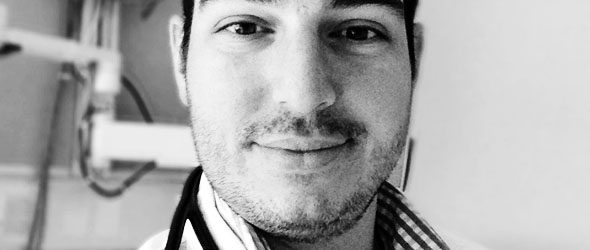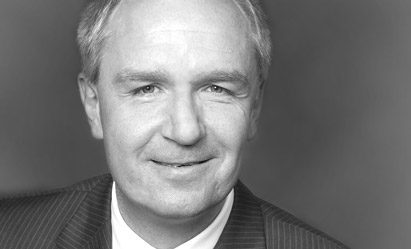eHealth
Can artificial intelligence predict emergency department crowding?
Despite Ontario’s Northern Health Travel Grant, some still pay out of pocket

When Nan Normand’s husband had quintuple bypass surgery, it cost them $1,500. It wasn’t the operation that was pricey, but the travel. The couple went from Kenora, a small city near the Ontario-Manitoba border, to Hamilton for the surgery. The trek included flights and a multiple-night stay. Normand was unlucky: Manitoba had temporarily stopped accepting most Ontario heart patients, …
We are on the cusp of a mobile health revolution

When I was a medical student in the mid-2000s, I witnessed the early phases of mobile apps designed to help deliver healthcare. They were mostly electronic books, in the form of preloaded web pages. We’ve come a long way: I’m now a practicing physician and I find myself using an increasing number of mobile health …
Policy implications for the virtualization of health services

Virtual care (where the provider and patient are separated in space and sometimes in time) is a natural next step in technological innovation for healthcare. Increasing care virtualization has the potential to improve quality of life for patients while increasing the healthcare system’s efficiency but it presents substantial challenges for clinicians and policy makers. The …
Computers vs. patients

If you’re a medical intern (a new doctor in their first year of additional training after medical school), most of what you need to do your job can be pulled off a computer screen: Blood test results. Paged messages. Orders to start a medication. All but, of course, how sick a patient is. How he …
Cutting through the hype – will a “medical tricorder” really replace doctors?

The Scanadu Scout is the forerunner in the race to invent the “Medical Tricorder”, the handheld scanner from Star Trek that space-age doctors use to gather data on a patient. This past May, Scanadu put the device up on Indiegogo, a crowdfunding website, asking for $100,000 for its development. The Scanadu Scout is a small …
We have the communication technology – let’s use it!

There is little doubt that Canada requires a seismic shift in policy and leadership – though not necessarily additional significant investment – to make the needed improvements in health care delivery. This is made abundantly clear in the Health Council of Canada’s Progress Report 2013: Health Care Renewal in Canada; an impressive report that captures …
Are Canadians too satisfied with their health care system?

Canadians are proud of Medicare and consistently report being satisfied with the health care services they receive. But, perhaps they should be demanding better. The most recent Health Council of Canada report highlights findings from the 2012 Commonwealth Fund survey of primary care physicians in 10 high income countries. In almost all areas – from …
Why aren’t Canadian family doctors embracing e-communication?

In the last decade, technology has revolutionized the way we live and work. We email and text more often than we phone or fax. We share photos with friends using Facebook and debate with colleagues in real-time using Twitter. We pay bills, book plane tickets, and buy clothes on-line. We can effortlessly post opinionated blogs …
Telemedicine, the next frontier: bringing care to where patients live

“On average, it costs the system $50 000 a year to provide dialysis treatment for one person with chronic kidney disease. If a patient is admitted to hospital for an acute illness and requires ‘crash’ dialysis, this admission alone can cost upwards of $20 000, excluding emergency and transport expenses. The impact that these numbers …
The most exciting part of eHealth

When talking with my family and friends outside of healthcare I get mixed reactions to what eHealth means. Responses can range from simple to sad. “Is that like MRIs and stuff? “Do we have electronic records like at the store?” “My doctor has a Blackberry…. but I can’t email him, so I don’t know.” However, …
TechRx: building the apps pharmacy

Health Apps will be “prescribed” by clinicians for their patients in the near future. This article tries to sketch out how this “TechRx” and “Apps Pharmacy” process could/should develop. According to a recent report from Healthcare Information Management Systems Society, there are about 17,000 healthcare apps currently in use. This compares to a reported 300,000 …
The real eHealth scandal – we still don’t have a universal medical record

An E Health scandal? The real E Health scandal is that we don’t have an electronic health system. In an age of Google and 4G smart phones– the health system still functions largely with paper and fax. What we need is a fully integrated complex data system that not only has patient information in it …
Ontario’s new diabetes registry – the end of patient privacy?

More and more doctors across Canada are using electronic medical records to keep track of their patients’ health information. Finding a patient’s information record in most electronic medical databases involves entering the first few letters of each name, hitting <Enter> and choosing the appropriate person from the resulting drop-down list. Recently while looking up one …
Who controls how patient information is shared in Ontario?

Ontario’s Information and Privacy Commissioner recently ordered Cancer Care Ontario to stop sending paper copies of screening reports containing personal health information to physicians. However, a massive amount of personal health information is mailed or faxed every day in Ontario. The implications of this order to information sharing and transfer across the health care …

